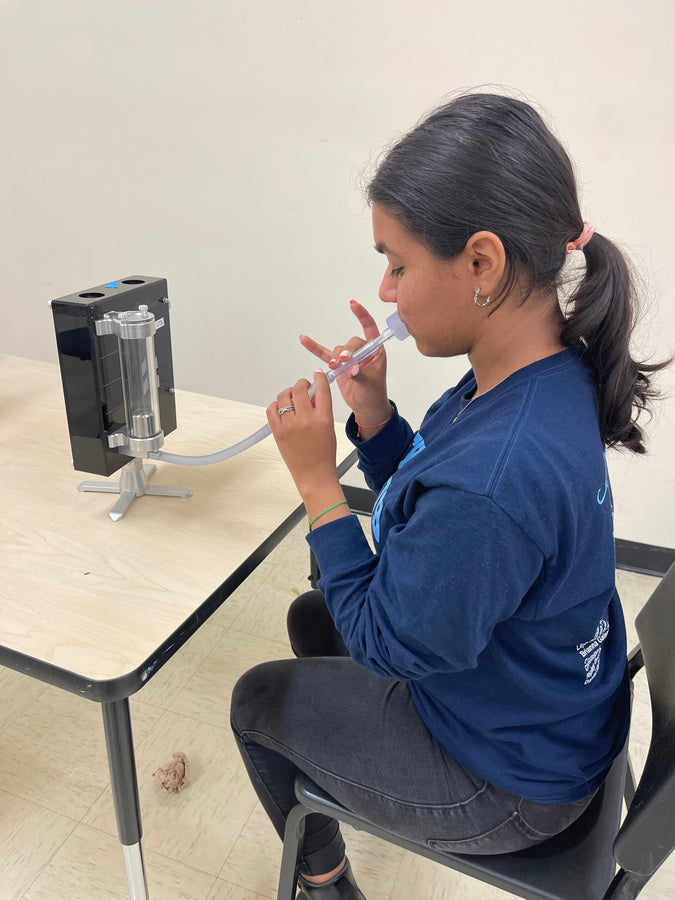Efficacious Breathing Techniques for Singers
Any entertainer deserving at least moderate respect will see the value in the advantages of good breath control. Fostering these abilities works on an entertainer's capacity to sing stronger, gentler, higher, and lower, with a controlled tone, with more power, hold notes or expressions for longer, with controlled dynamic and articulation, as well as expanding the strength of their vocal lines. All the tomfoolery stuff. Breath control is one of, on the off chance that not, THE most essential strategy to dominate for any singer. Whether you are an ultra novice or an accomplished entertainer, you want to have a turnout for your breathing muscles consistently to get to the next level. Great breath control comes from the 'wellness' of the muscles, which should be consistently practised to be kept up.

All in all, assuming it is so perfect, for what reason don't we as a whole practice our breathing exercises? Or on the other hand, for what reason are the activities we are doing not working? These are questions I have frequently asked, corresponding to myself as well as my understudies. These are a few potential responses
It is exhausting It's persistent effort A few understudies become baffled with slow advancement Pursuing erroneously can foster negative routines Understudies find it challenging to carve out opportunity inside a bustling way of life Understudies might find it hard to graph progress all alone and in this way lose inspiration to do it A few understudies don't have the foggiest idea what to do or how to function their breathing muscles without a coach Numerous understudies miss the mark on security or space to rehearse A few understudies frequently find it more humiliating than rehearsing other melodic abilities like playing scales on a piano, for instance, A few understudies may not completely value the advantage to singing A few understudies find it challenging to apply breathing methods to singing tunes The propensity for some singing understudies is to rehearse melodies, not singing strategies.
I find these reasons can to a great extent be parted into three classifications:- (I) not knowing how to make it happen (ii) not being spurred to make it happen (iii) useful issues like not having time or space to do it Any of these reasons will influence on creating breath control, and breaking point progress around here. So how would we beat this multitude of hindrances to creating a spectacular breathing strategy? My view is that an alternate methodology should be taken for each kind of obstruction.
Type (I) not knowing how to make it happen. If you don't know how to inhale accurately or how to rehearse your procedure, the best strategy is to have some private vocal training. If you are as of now having educational costs, request that your guide recap this for you, and give you explicit directions of what to rehearse. Attempt this activity to get to diaphragmatic relaxing. Lie on the floor with your knees up, and feet level on the floor. Keep up with the normal bend of your spine, so don't crush the little of your back into the floor. Here, take several casual sluggish full breaths. Breathe in and breathe out completely each time. Presently put a book on your lower mid-region. As you breathe in you ought to see the book rise, and as you breathe out it will lower. This is diaphragmatic relaxing. If the book isn't going up when you breathe in, you are possibly filling the top piece of your lungs when you relax. Focus on moving the book up as you breathe in. Whenever you have the hang of this, attempt to rehash this movement in a standing position, and control your breathing by taking in for four excludes and then for four counts. Foster your control by expanding the number of counts. Ensure you keep up with complete concentration all through to guarantee your breathing muscles are moving accurately.
How might we handle the second sort of impediment - not being inspired to make it happen? Assuming that you are perusing this article, I will expect that you have at any rate an inspiration to get to the next level. Yet, in the same way as other different things throughout everyday life, inspiration back and forth movements, so how might we stay persuaded when things begin to slip? What breathing activities work when our inspiration is low? As well as zeroing in on the huge number of advantages of good breathing, I find that graphing progress is an extraordinary inspiration. Keep a training journal or practice timetable, and record your improvement of the method. A model advancement log is given toward the finish of this article. One activity is to inhale into the stomach and murmur on the breath. Include in your mind or ask another person to count so that you could perceive how long you can support the murmur. Record the number in your advancement log. Do this one time per week. At the point when you are feeling unmotivated to work on the breathing procedure, think back to the start of your log and see the distinction in the number. Besides, attempt an alternate strategy. Bunch classes like Pilates, Chi Kung, and Breathing Treatment For Vocalists can be a rejuvenating change of speed to re-propel and pull together your thoughtfulness regarding the breath. Thirdly, pay attention to your godlike objects. Contemplate every one of the justifications for why you needed to be a vocalist. This may be sufficient to stall out into that stomach workout.
So what might be said about the last classification of hindrances - not having time or space to rehearse? Carving out satisfactory practice opportunities and space is turning into a typical subject among my understudies, because of the inexorably requesting way of life so many of us lead. There is no viable replacement for carving out normally committed practice opportunities, however, if this is simply unrealistic, or there are periods when this is restricted, performers need to find practices they can squeeze into their regular daily schedule. As further developing breathing strategy is, for the most part, creating muscle memory and wellness, vocalists will see greater improvement through several minutes of centered practice consistently, as opposed to unpredictable longer meetings with days or weeks between them. Little and frequently. Assuming you're truly crushed for time, attempt these 'ordinary' practices dispersed all through your day-to-day daily schedule.
Take in Bed - when you wake or not long before you rest, lie on your back and rehash the floor practice portrayed previously. breathing techniques for musicians in into the stomach for four counts, stop momentarily, breathe out for 4 counts, and delay. Guarantee that you inhale completely out before you breathe in once more. You ought to feel good and loose all through. Rehash, adding a number with every redundancy. Do three or four consistent redundancies every day. Stir up to breathing in and breathing out ten counts with full oversight and no tipsiness. This will take roughly 2 minutes and is an exquisite method for calming a bustling mind before sleep time.
'Shhh' in the shower - breathe in completely into the stomach. With the complete spotlight on the breathing muscles, breathe out to 'shh' getting the lower muscular strength and stomach until you are out of air. Rehash this a few times consistently.
Quaver at the traffic signals - if you drive or invest any about of energy in the vehicle, you might fit in quaver at the traffic signals. Try not to do this until you can do both the above practices without feeling discombobulated or tipsy, and ensure you are stopped before you start. Inhale into the stomach and as you discharge breathe out, 'quaver' - this can likewise be portrayed as moving your tongue or murmuring like a feline. Support the quaver as long as you can. On the off chance that you lose the quaver mostly through your exhalation, you want to reconnect the breathing muscles to increment support. Rehash on more than one occasion. Watch out for the lights.
For More Info:-
Source Url :- https://sites.google.com/view/lungtrainerspol/home

Comments
Post a Comment